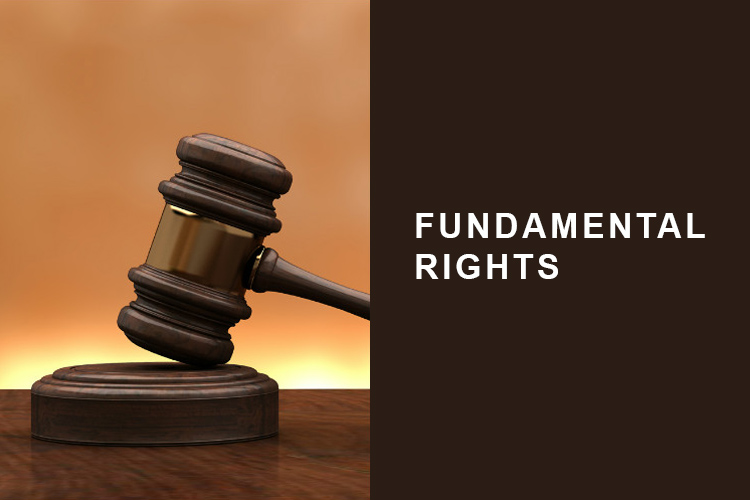
INTRODUCTION:
Fundamental rights are those rights which are essential for intellectual, moral and spiritual development of citizens of India.
LAWS GOVERNING THE FUNDAMENTAL RIGHTS:
Articles 12-35 of Indian Constitution deal with Fundamental Rights. These human rights are conferred upon the citizens of India for the Constitution tells that these rights are inviolable. Right to Life, Right to Dignity, Right to Education etc. all come under one of the six main fundamental rights. There are six kind of fundamental rights guaranteed by Indian Constitution and are as below:
- Right to Equality (Article 14-18)
- Right to Freedom (Article 19-22)
- Right against Exploitation (Article 23-24)
- Right to Freedom of Religion (Article 25-28)
- Cultural and Educational Rights (Article 29-30)
- Right to Constitutional Remedies (Article 32)
The Supreme Court of India and High Courts are the defender of the fundamental rights of the citizens. For that, it has original and wide powers. It issues five kinds of writs for enforcing the fundamental rights of the citizens. The five types of writs are:
- Habeas Corpus
- Mandamus
- Prohibition
- Certiorari
- Quo-Warranto
WHAT IS THE IMPORTANCE OF FUNDAMENTAL RIGHTS IN INDIA:
Fundamental rights are very important because they are like the backbone of the country. They are essential for safeguarding the people’s interests. According to Article 13, all laws that are violative of fundamental rights shall be void. Here, there is an express provision for judicial review. The SC and the High Courts can declare any law unconstitutional on the grounds that it is violative of the fundamental rights. Article 13 talks about not just laws, but also ordinances, orders, regulations, notifications, etc. Any changes to the fundamental rights require a constitutional amendment that should be passed by both the Houses of Parliament. The amendment bill should be passed by a special majority of Parliament. The question is whether a constitutional amendment of fundamental Rights can be termed law or not.
In the Sajjan Singh case of 1965, the Supreme Court held that the Parliament can amend any part of the Constitution including fundamental rights.
In 1973, a landmark judgment ensued in the Kesavananda Bharati case where the SC held that although no part of the Constitution, including Fundamental Rights, was beyond the Parliament’s amending power, the “basic structure of the Constitution could not be abrogated even by a constitutional amendment.” The Court further held that Fundamental Right forms basic structure of the Constitution.
This is the basis in Indian law in which the judiciary can strike down any amendment passed by Parliament that is in conflict with the basic structure of the Constitution. In 1981, the Supreme Court reiterated the Basic Structure doctrine. Fundamental rights are such rights which are protected by the Supreme Court and the remedy of violation of fundamental rights is itself a fundamental right, as provided in Article 32 of Constitution.